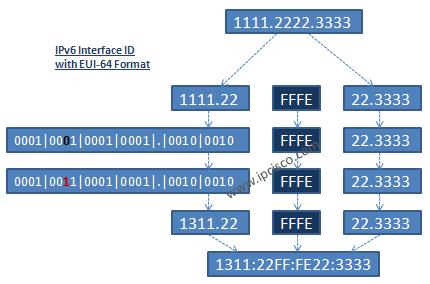- COURSES
- SPECIALS
- BLOG
- MEMBERS
- SHOP
- ABOUT
- ENROLL HERE

Table of Contents
IPv6 Address is the new generation IP address that is mainly deveoped to overcome IPv4 exhaust and its limitations. As you know, IPv4 Addresses were limited and exhaused shortly. For the new technologies, more IP addresess needed and for this need a new IP version has developed. This is IPv6. We can say that, IPv6 is the new IP Address type that we will use on our network devices anymore.
Like IPv4, IPv6 has also different IPv6 Address Types. We will talk about these address tpes one by one in another lesson. Here, we will focus the basics of the lesson. After this lesson you will learn IPv6 Subnetting. You can also check wiki definion of IPv6.
IPv4 is most widespread implementation of IP protocol. It has 32 bit adress space, so it allow to use almost 232=4,294,967,296 addresses in internet. Because of the fact that these addresses are almost run out a new version of IP is revealed.
Before IPv4 addresses run out, some techniques like CIDR,NAT,Priviate Addresses are used to alleviate this shortage.
Between IPv4 and IPv6, in the middle, there is another version of IP, IPv5. IPv5 is used for “Internet Streaming Protocol” for research and development. So, the new version of IP, that will be used on the network devices become IP version 6, IPv6.
The new and the next generation version of IP, IPv6 has 128 bit address space.So there are almost 2128 available addresses for this devices.This is almost 340 undecilion available addresses, nearly unlimited.
You can also test your IPv6 Knowledge on IPv6 Questions Page.
Some new featured that IPv6 Brings. These new benefits that comes with IPv6 are given below:
Different than IPv4, IPv6 are written with hexadecimal digits.This address is consist of eight colons and in each colons there are four digits.So the address become 8*4*4bit = 128 bit. An example of an address is given below:
2345:0425:2CA1:0000:0000:0567:5673:23b5
There are some abbreviations while writing an IPv6 address.These abbreviations are mentioned below :
• There is no need to write the leaing zeros. Leading zeros can be dropped like below:
2345:0425:2CA1:0000:0000:0567:5673:23b5 ==> 2345:425:2CA1:0000:0000:567:5673:23b5
• If we have an entire field of zeros we can use only one 0 for each colon:
2345:0425:2CA1:0000:0000:0567:5673:23b5 ==> 2345:0425:2CA1:0:0:0567:5673:23b5
• If we have a set of contiguous zero fields we can use double colons(::). Double colon can be used only one time in an IPv6 Address Example.
2345:0425:2CA1:0000:0000:0567:5673:23b5 ==> 2345:0425:2CA1::0567:5673:23b5
IPv6 Address always use CIDR(Classless Inter Domain Routing) to determine the IPv6 Prefix. You can find an example of an Ipv6 Prefix below:
2345:425:2CA1:0000:0000:567:5673:23b5/64
Leave a Reply